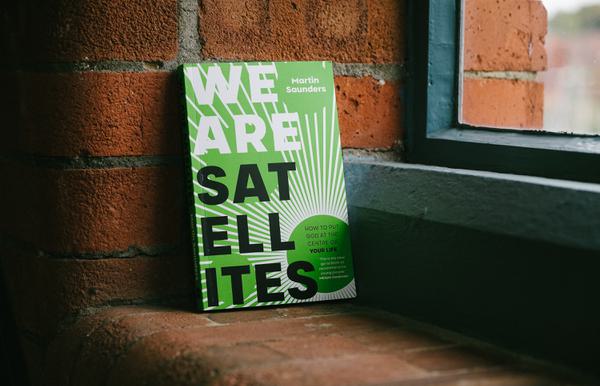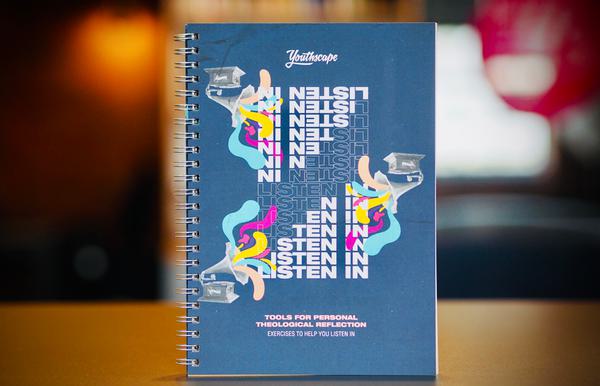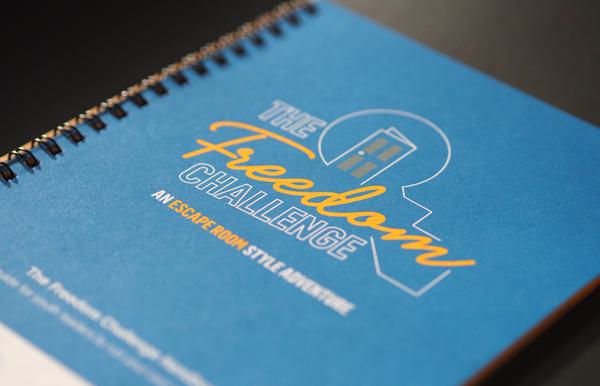The Ukrainian refugee crisis will prompt many to open their doors and serve those in need. But who is helping the helpers? David Bunce explores the challenge of vicarious trauma and how it plays out in youth work.
I don’t know about you, but I feel like the world changed on the 24th of February. I live in Austria. In less than a day’s car journey I would be in a country which is torn apart by a war of aggression. That’s a sobering fact.
Within less than a week, the first refugees from Ukraine were welcomed to our small mountain town (population ~ 13,000) – just as they were welcomed in even greater numbers in Hungary, Poland, and Romania. And as they probably will be welcomed in the UK in the coming weeks and months. And so begin the first metres of a marathon that will be with us for, realistically, at least the rest of the year.
Before I worked in youth work, I was involved in a church with a long history of working with refugees. And so, whilst lots of people were beginning to welcome refugees – help them navigate their way around foreign systems, welcoming them into their houses, responding to various needs – I was asking a different question: how can we (as a church) help those in our midst who are helping traumatised people?
I think this is a vital question. And I think it is a question that is more widely relevant to youth work too. Trauma is a fact of life in our work: whether it’s from domestic or sexual violence, from poverty, from ill health or from accidents. Working with people in general means that we will be working with people who have experienced trauma.
What do we need to be aware of? I think there are two things: making sure we don’t make anything worse, and making sure that we stay healthy.
Don't break anything more!
“Do No Harm”. If you’re a fan of medical dramas you might know this phrase. The idea is: we don’t want to make a bad situation worse, particularly from thoughtless or careless action. In the last decades, this approach has also entered the aid sector and is finally entering the church. Whilst this could mean lots of different things in the area of trauma and refugees, I want to particularly address one: the danger of re-traumatisation. This means that the trauma is re-experienced by the affected person.
One of the most important things to avoid here is asking for lots of details about what people have experienced (‘how did you escape that attack?’ or ‘what was it like when the bomb went off?’). This can lead to strong emotions rising to the surface and a renewed feeling of helplessness for those who have been affected by a traumatic experience – leading to a person ending up back in the fight-flight-freeze response. It also risks the danger of secondary trauma for you as a helper (more on that below). Likewise, sometimes traumatised people have the urge to retell this story – however, if this just happens in an unstructured way, it can also lead to re-traumatisation and re-experiencing the emotions. Here it can be important to redirect the conversation gently but firmly.
However, I also don’t want us to take the wrong conclusion from this. Sometimes people hear about the risks and complexities of working with traumatised people and think it is a hugely specialist subject only for professionals. Our culture can also reinforce this message: we tend to quickly ‘medicalise’ problems – and where there is a medical label, then it means we are looking around for an ‘expert’ to come and solve it. But that is equally unhelpful.
Whether with trauma or with any other complex needs (such as mental health challenges), whilst there is a role for expert help, there is also a huge need for ‘normal’ community. People sharing life together, helping each other, ‘being’ with each other. A sense of normality where people can be enjoyed (as Sam Wells puts it) for who they are instead of being seen as a problem to be fixed. And here youth workers can have a vital role to play: we can invite people into community, we can be a ‘steady friend’ (of course remembering good safeguarding practice) to a young person. We just need to be aware of good practice and make sure we don’t accidentally make things worse – and know when we do need the help of someone more knowledgeable or experienced!
Don't break yourself
The need is so great! There is always more that needs to be done! A few more hours and I can help more people. Help another young person in need. Help another refugee find a shelter for the night.
Does any of that ring a bell for you? Do you feel that in your ministry? If so, you need to be careful. This is the beginning of a path that can lead to burnout. Especially with an acute need like a refugee crisis, it can be easy to work and work and work – and suddenly you realise you’ve volunteered for 80 hours that week and the week before and the week before that. And you haven’t seen your friends or partner for a month.
"You cannot help every traumatised teenager who comes across your path. You cannot help every refugee you might with whom you might come into contact. You cannot save every person from a difficult situation. And if you try, you will hurt them and hurt yourself."
This is a dynamic that can’t be maintained – and sooner or later your petrol tanks are going to be empty, and you are going to be emotionally exhausted. This is how burnout happens. Or you become numb and cynical to everything around you and to the need in front of you – and end up with compassion fatigue.
Another related risk is that of secondary or vicarious trauma. That is where you yourself experience symptoms of trauma (you find yourself having intrusive thoughts based on things people have said to you about their own experiences, you can’t sleep, you emotionally share the experience of a traumatised person and are no longer in touch with your own feelings, you have rapid heartbeats or sweaty palms etc). Basically, secondary trauma is when we take someone else’s trauma onto ourselves – and experience it alongside them.
All three risks – burnout, compassion fatigue and secondary trauma – mean that we are ultimately unable to help those we are seeking to help. And we can end up being actively harmful to them.

So what can we do?
What can we do? Well, we need to know both where our boundaries are and also how to keep our tanks full.
1. BOUNDARIES: YOU CAN'T HELP EVERYONE
First: boundaries. I’m going to be brutally honest for a moment: you cannot help every traumatised teenager who comes across your path. You cannot help every refugee you might with whom you might come into contact. You cannot save every person from a difficult situation. And if you try, you will hurt them and hurt yourself. You need to know where your own boundaries – time, energy, skills, abilities – are. And you need to keep to them. Even – especially! – in a crisis situation.
If you are someone in charge of volunteers or a line-manager, you need to know that setting this boundary for people in your organisation is part of your duty of care. It is your responsibility to say ‘stop’ at the appropriate time. It is probably not going to win you friends – as I’m sure the last sentences are not going to set up the David Bunce fan club, especially in a Christian culture that often puts selfless helpers up on a platform and negatively judges boundaries. But it is what will keep you and your team healthy – and able to help.
2. SELF-CARE: KEEP THE TANK FULL
Secondly: keep the tank full. Too often we can think that self-care is an added luxury, like lavender-scented potpourri in a bathroom. But it isn’t. To stick with our bathroom analogy: it is the toilet paper. No self-care and things get … messy. And the great thing is that this stuff isn’t rocket science. Make sure you are moving – running, swimming, cycling. Make sure you are sleeping and eating healthily. Make sure you are connecting in a meaningful way with your family and friends. Do things that bring you joy. Work out what empties the tank and work to eliminate it. For instance: for more than a decade I have a rule that I do not ever watch violence on TV or in films, because I am also working with people who have experienced violence. I just do not need that energy in my downtime. My colleague doing the same job loved nothing better than putting on a high BPM (bodies per minute) film at 1am to relax. People are different. Work in a team with other people and laugh together a lot. Pray. Worship. Sing. Grow something in the garden or on a windowsill. Do something fiddly with your fingers like a craft. Lie on your back and watch the clouds.
Keeping the toilet paper roll full means you are able to be present in a meaningful way to those to whom you are ministering.
And if you notice that your toilet paper is running empty and you are approaching the dangers of burnout, compassion fatigue or secondary trauma – get help early. Talk about it with someone on your team, with a supervisor, with a mentor, with a therapist. Please don’t try and hang on in there or self-medicate with alcohol, pornography or similar. You are too precious for that.
Go ahead and do!
Talking about boundaries isn't always popular. We love the success stories about people sacrificing everything. They are often the ones who end up with book deals and as famed conference speakers. However: nearly a decade of ministry with refugees and young people, and a lot of experience supervising volunteers, suggests that it's boundaries that are needed. Especially now in this moment with this challenge. We are not in a sprint but in a marathon and we need to be healthy if we are going to run in a meaningful way.
I don’t want anything here to discourage you from helping – of course we should be the hands and feet of Jesus, that is our glorious calling as beloved children of God. But I want us to be helping in a way that is life-bringing and sustainable, and that is honouring to those we are helping by refusing to participate in a way that brings further harm. I have seen far too many people washed out by the tide of ‘need’ to say nothing. So please do prayerfully consider this approach, talk about it with your team and use it as a way to reflect about how you are responding.











